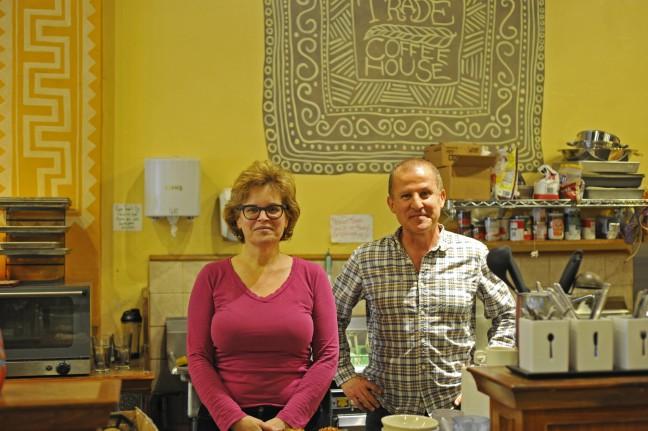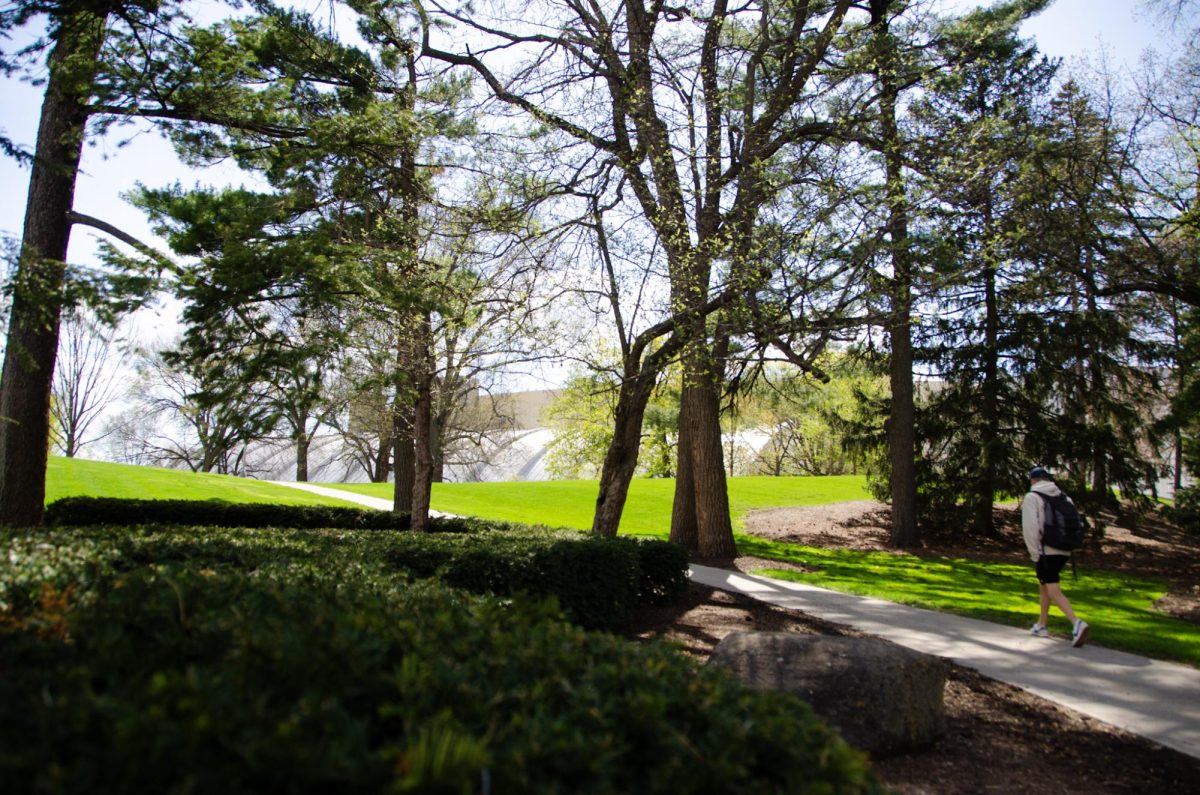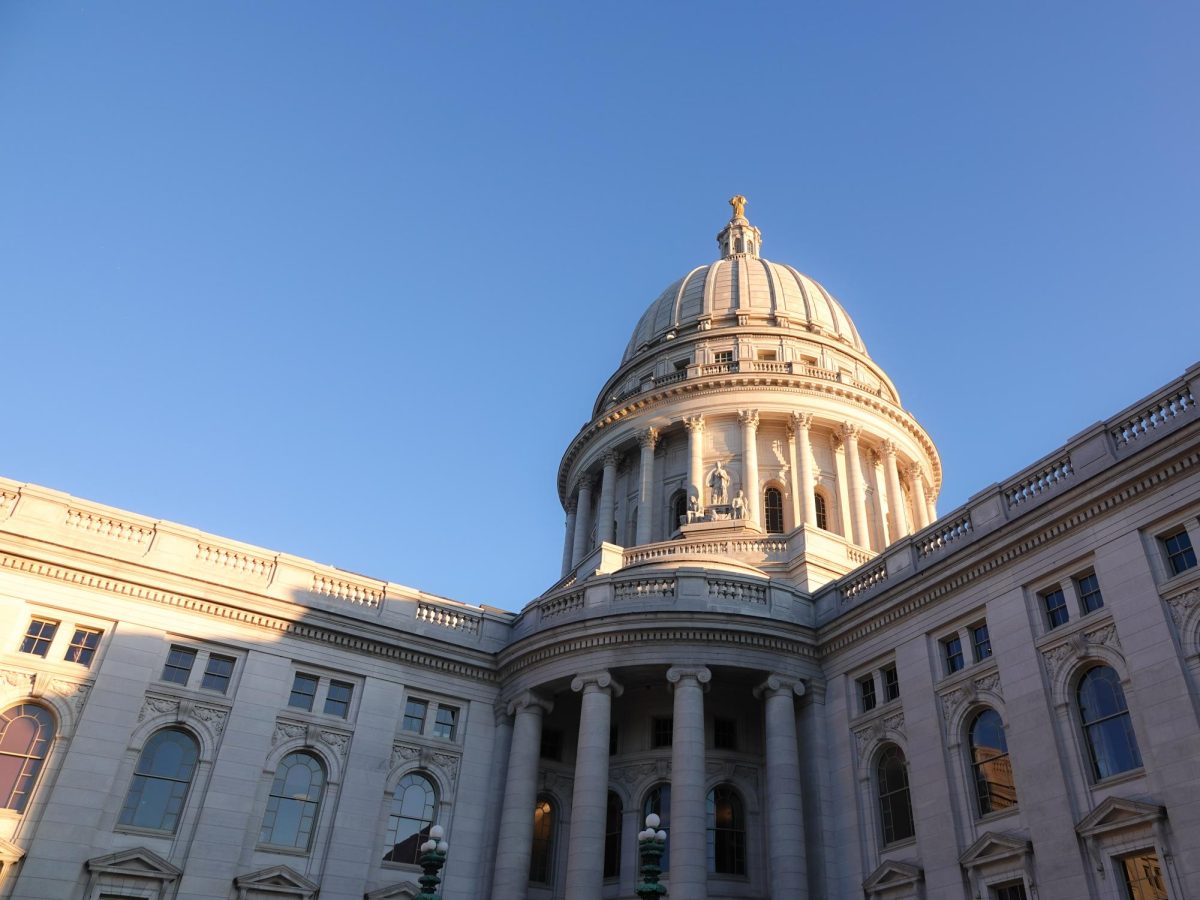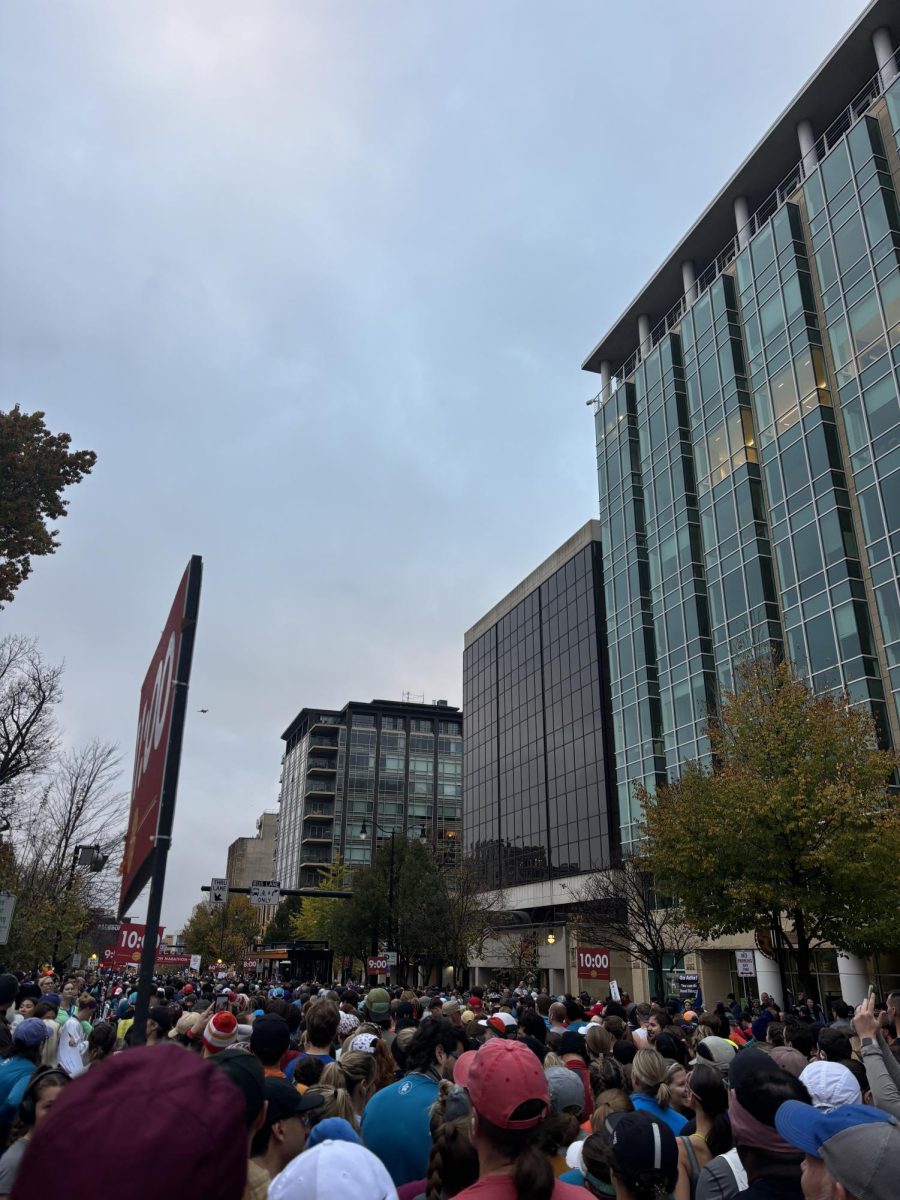Before they opened State Street mainstays Michaelangelo’s and Fair Trade Coffeehouse, Sam Chehade and Lori Henn met in a bar.
Henn was working at the University of Wisconsin and Chehade had been working in Madison after moving from Columbia. Now they own two of the city’s oldest independent coffee shops, which they run with a focus on providing equitable products at fair prices.
“I was very curious about coffee when I started reading about the inequalities of the industry, how they import the coffee, how disproportionate the wealth of the farmers is versus the brokers,” Chehade said. “Slowly but surely I started discovering more and more things that drove me in that direction.”
The couple has now been married for almost 20 years and have been in the coffee shop business since Michaelangelo’s opened 17 years ago on the 100 block of State Street. Henn opened Fair Trade Coffeehouse 10 years ago on the 400 block.
Henn and Chehade serve coffee that is entirely fair trade in the shops. They buy their coffee from Equal Exchange and are committed to providing an equitable product to customers that follows their “think before you drink” motto.
“Fair trade is much more of a relationship between the grower, the roaster and the ultimate seller,” Henn said. “It was really founded around a sense of equity when people largely in developing countries that are working for a pittance and providing wonderful coffee for people who can afford to buy it and sit in a café and not worry about their next meal.”
Henn and Chehade were recently invited by Equal Exchange to travel to Chiapas, Mexico where they stayed with several coffee cooperatives.
Henn said she was amazed at all the work that goes into growing coffee that many people do not consider when they buy a cup.
“It becomes really different when you have a personal relationship with the people who are suffering economically,” she said. “The head of the co-op, Leo, he probably weighed 135 pounds. He carries a 175-pound bag of coffee off the mountain when he harvests.”
An argument against fair trade coffee that Chehade said he often hears is that it allows for “mediocrity” in the product that is grown. He strongly disagrees, adding it is unfair how large coffee corporations saturate the market and cause deflation in the industry.

Equal Exchange has been trading coffee fairly since it first started more than 25 years ago, Chehade said. They work with various cooperatives throughout Latin America and Africa, trading not only coffee but also other products including bananas, chocolate and tea.
“Big corporations do that. And we’re small people but we are trying to at least make a contribution and fight against those big conglomerates,” Chehade said.
Fair Trade and Michelangelo’s both look to provide customers with an option to buy a high quality product that provides real meaning for the lives of growers, Henn said.
When their businesses first opened in downtown Madison, the coffee shop market in Madison was quite different, Chehade said, with more independent coffeehouses and fewer large corporate coffee businesses.
“They say [opening more coffee shops] gives more choices to customers but, on the contrary, they’re attracting coffee chains with deep pockets and saturating the market,” he said














